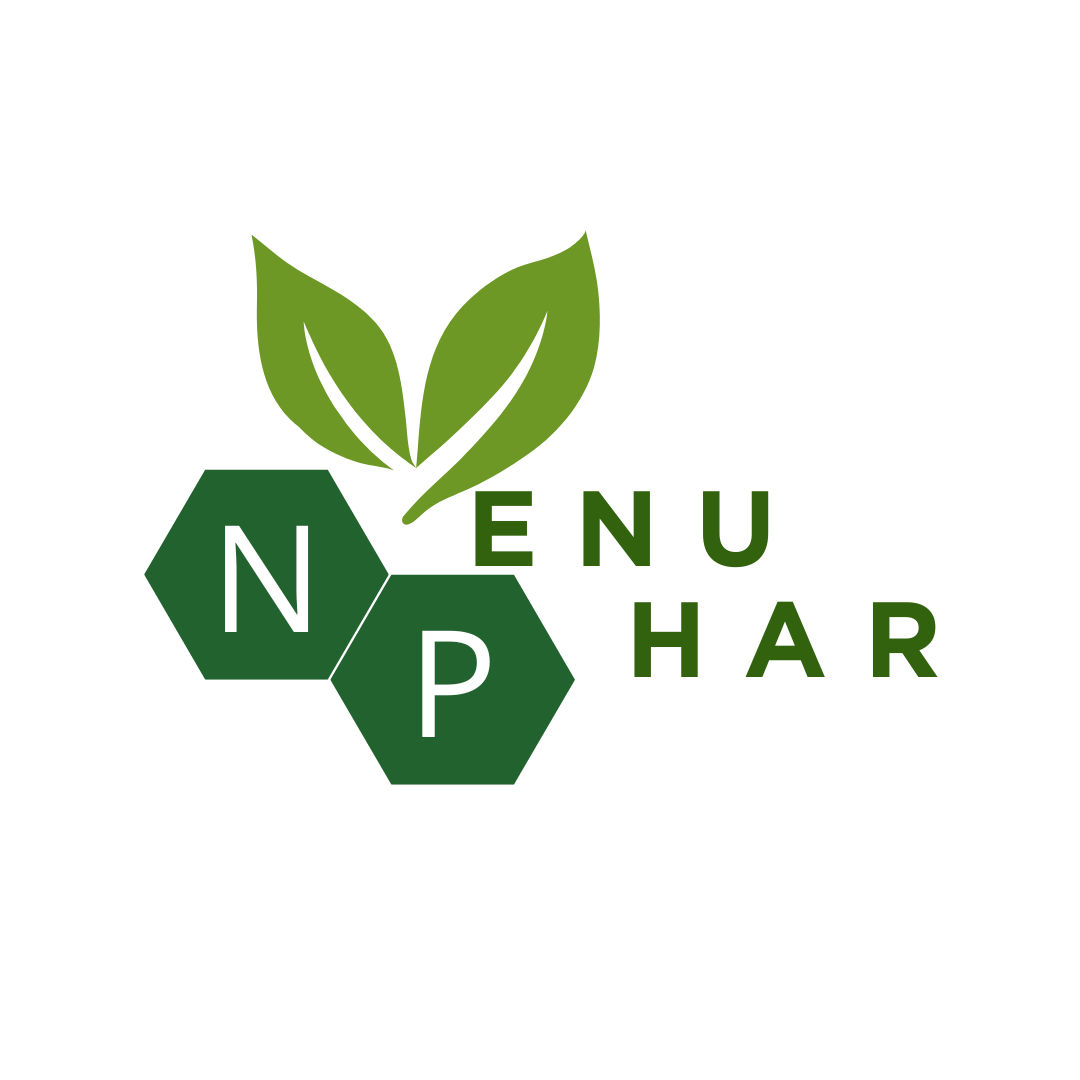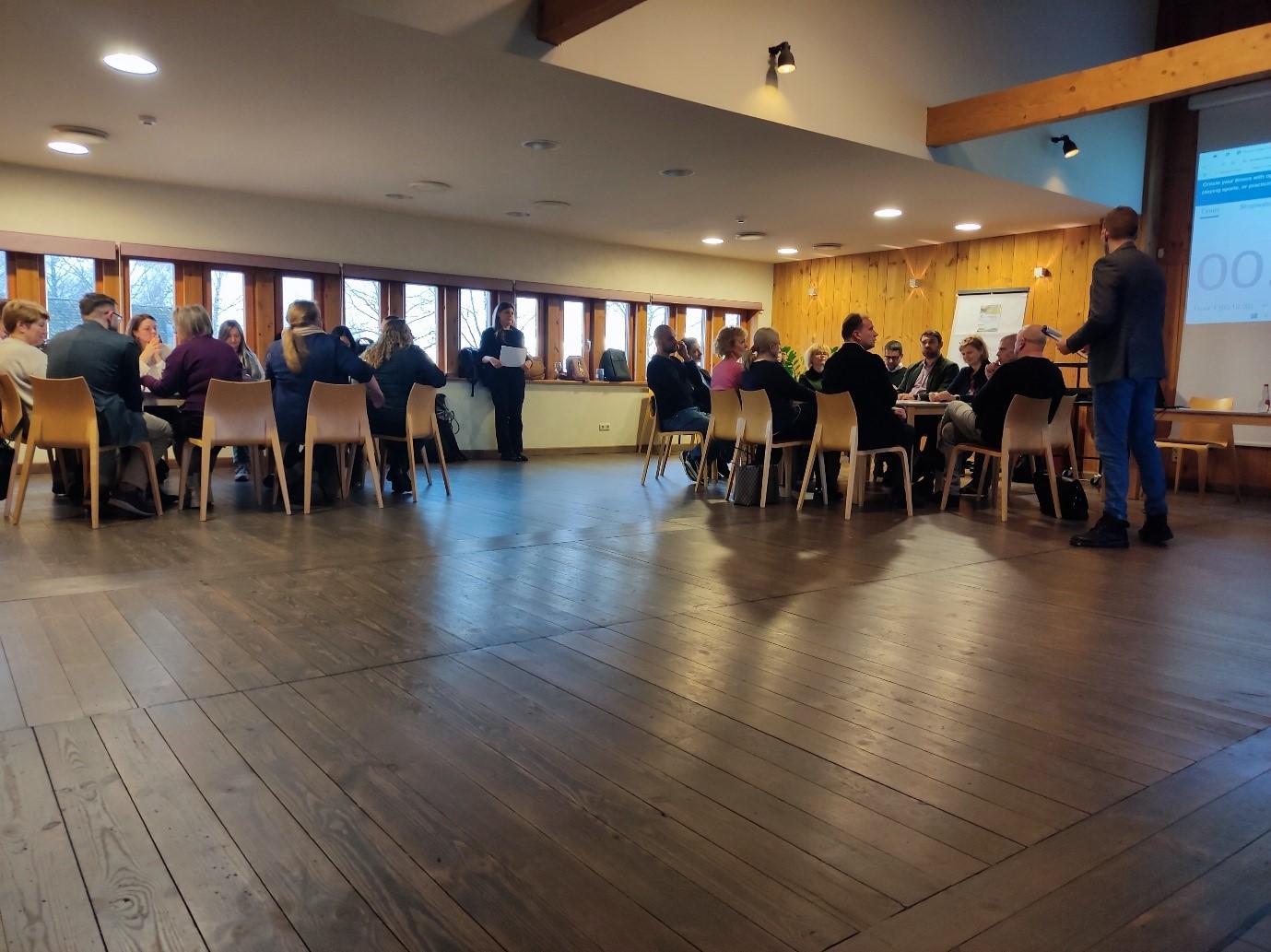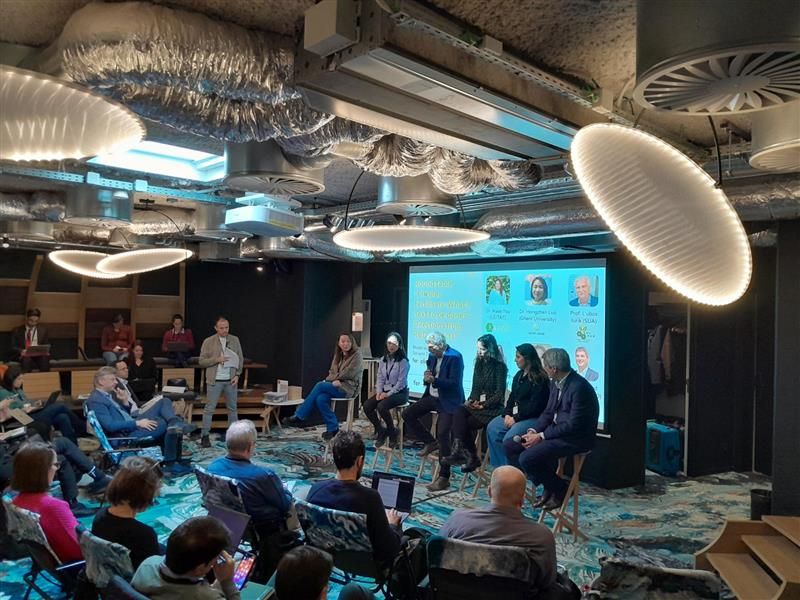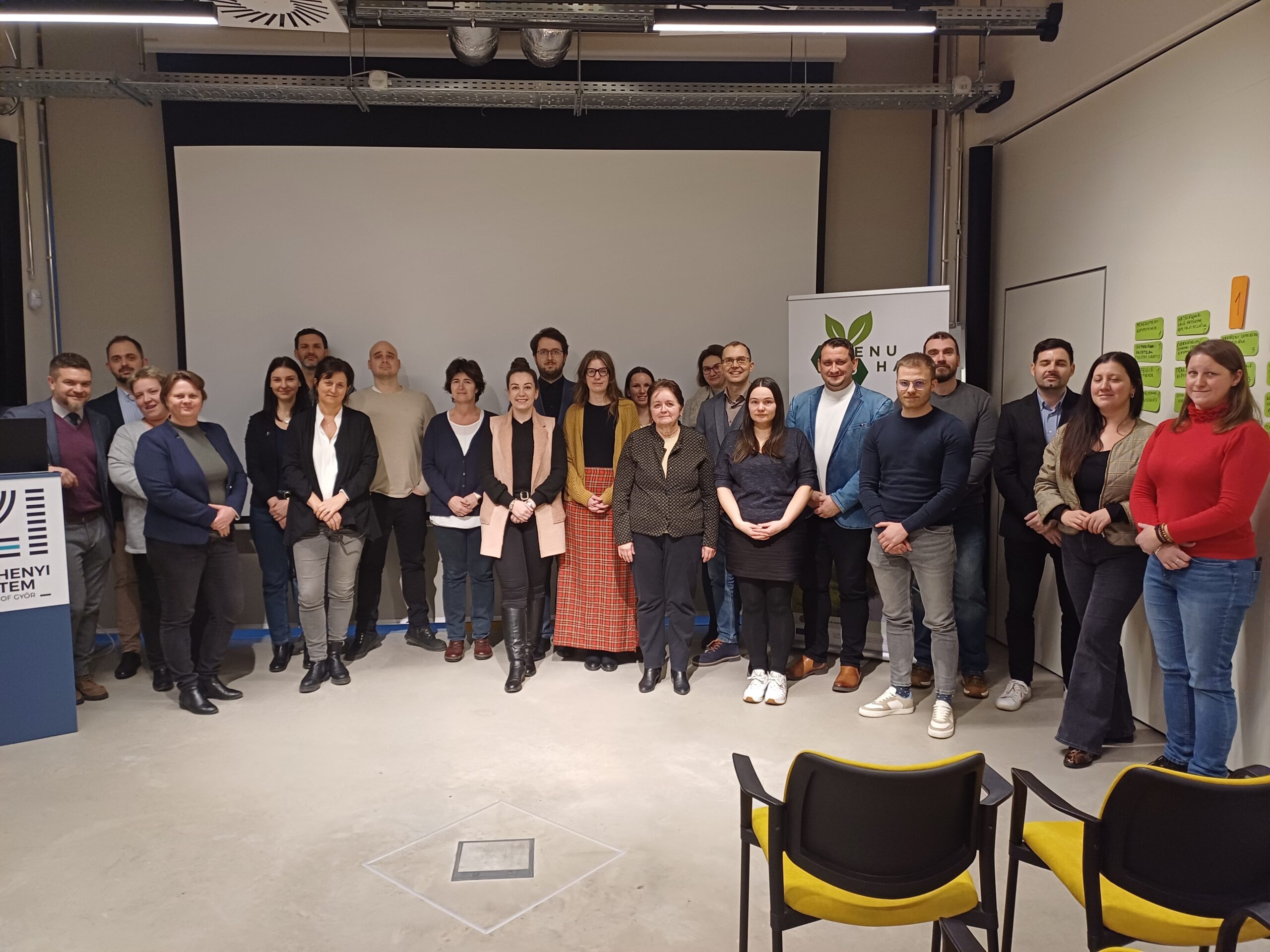Lielupe River Basin’s Community of Members has started its activities in January 2025. Read our partners highlights below.
VDU, Lithuania – Nenuphar Workshop in Latvia: How to Leverage Composted Sewage Sludge in Agriculture
On January 30, partners of the Nenuphar project from Lithuania and Latvia came together for a stakeholder vision workshop on “Sewage Sludge Management and Its Use in Agriculture in the Lielupe River Basin.”
The event, held in Ceraukste, Latvia, began with six insightful presentations, including two delivered by representatives of Vytautas Magnus University (Lithuania) – Dr. hab. Arvydas Povilaitis, and project specialist Martynas Žiūrys.
Dr. hab. A. Povilaitis presented key activities involved in monitoring the impact of compost on agricultural soils and the environment in the Lielupe River Basin. These activities included the selection of demonstration sites, agreements with local farmers for field monitoring, the design and production of monitoring wells, soil sampling, and analysis, the installation of monitoring wells, soil CO₂ emission measurements, chemical analysis of composted sludge, and the application of composted sludge to fields, among others.
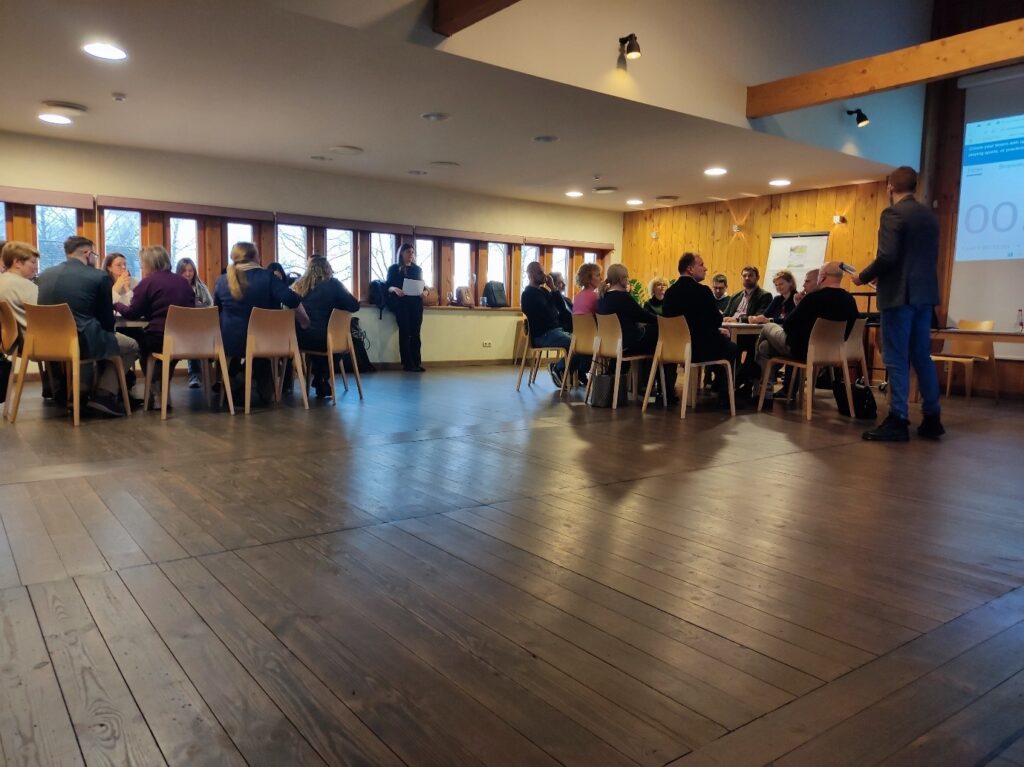
In addition, Vytautas Magnus University representative M. Žiūrys introduced findings from a joint study conducted with Dr. hab. A. Povilaitis, titled “Composted Sewage Sludge for Sustainable Agriculture: Perspectives from the Lithuanian Scientific Community”. The study was based on a questionnaire completed by 48 Ph.D. holders in Agricultural, Technological, and Health Sciences. The surveyed Lithuanian scientists shared their perspectives on various aspects of sewage sludge use, including its application in agriculture, environmental issues, economic, political, and social barriers, infrastructure challenges, and innovations in emerging technologies. The most compelling insights from respondents were shared with stakeholders, sparking valuable discussions.
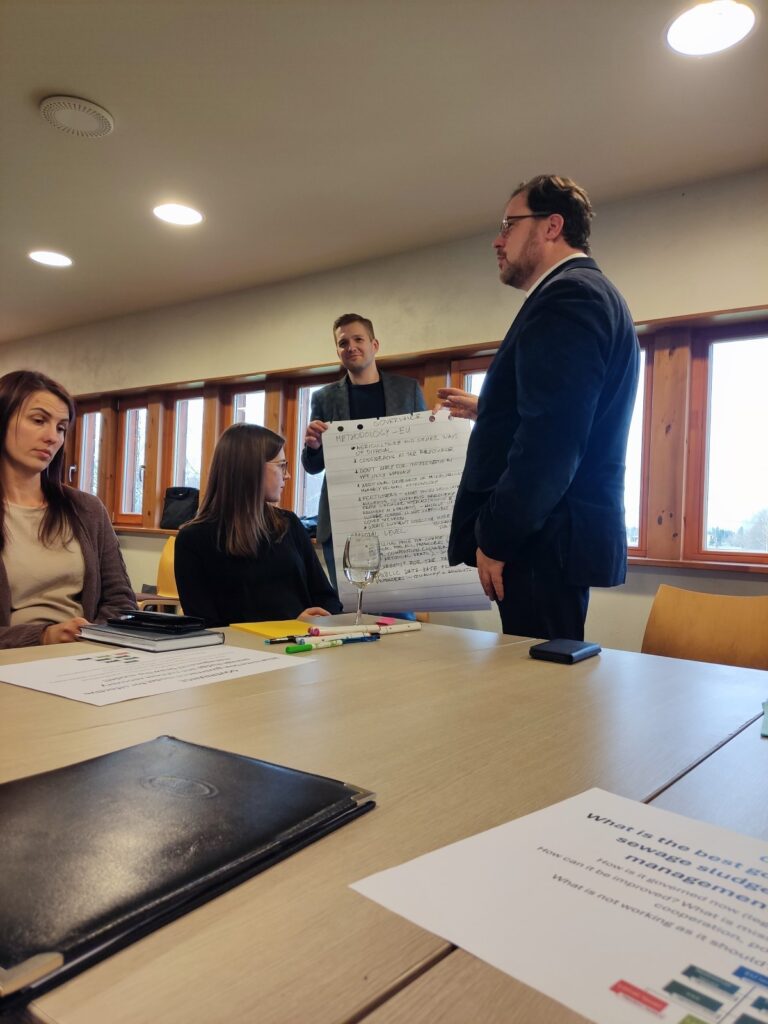
Finally, the event concluded with a workshop titled “Let’s Turn Waste Challenges into Rich Soil,” aimed at brainstorming and exchanging ideas on how to address challenges and discover new opportunities related to composted sewage sludge and its role in sustainable agriculture.
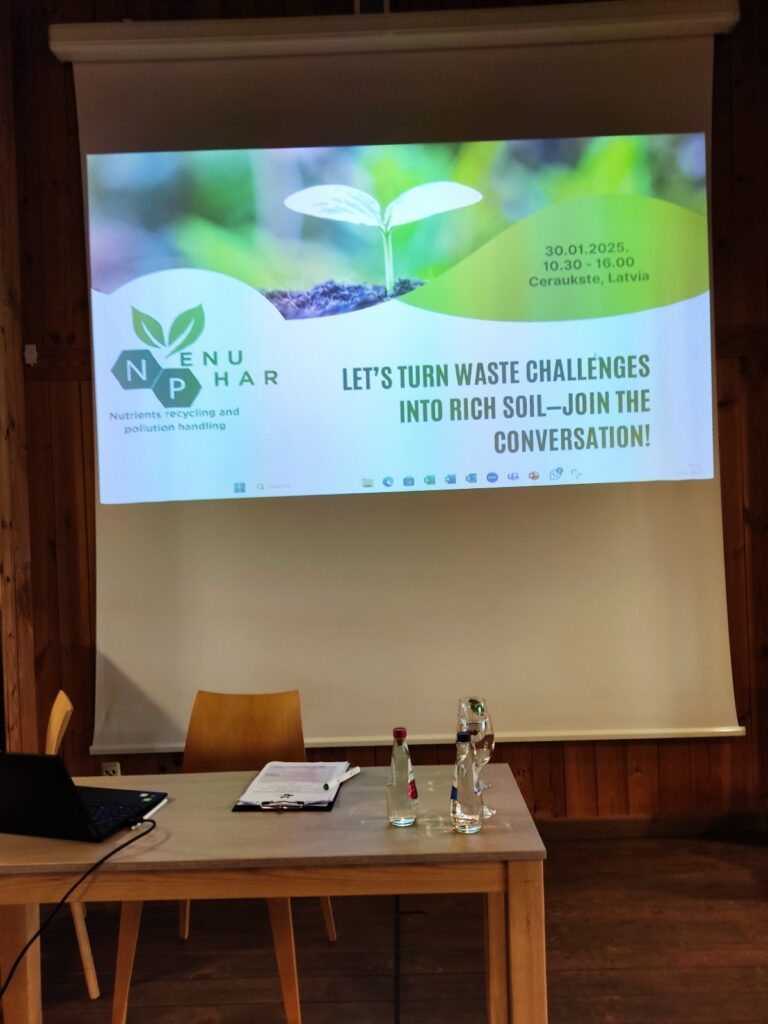
ZSA, Latvia – CoM Vision Workshop: Transforming Nutrient Management in the Lielupe River Basin
The NENUPHAR project Lielupe River Basin team kicked off the year 2025 with enthusiasm at the first Community of Members (CoM) workshop held in Ceraukste, located near the Latvian-Lithuanian border. This event marked a significant step in fostering collaboration among stakeholders in the Lielupe River Basin, focusing on innovative governance models for nutrient management and the reuse of sewage sludge.
The workshop brought together key players from the public and private sectors, academia, and NGOs, with a particular emphasis on engaging policymakers and wastewater managers. Almost 50 participants joined the discussion, demonstrating a strong interest in addressing the challenges and opportunities in sewage sludge composting and agricultural use.
Engaging Discussions and Expert Insights
The workshop was structured into two main segments: an informative session and an interactive discussion. Moderated by agricultural policy expert Valters Zelčs, the informative session included presentations from various project partners, highlighting the NENUPHAR project’s objectives and activities.
Jānis Zviedris from the Latvian Water Supply and Sewerage Association provided insights on effective sewage sludge composting, emphasizing that properly treated compost is safe for agricultural use. Professor Ainis Lagzdiņš from the Latvian University of Biosciences and Technology outlined how fields are selected for compost application, focusing on drainage systems to mitigate flooding risks.
Lithuanian representatives, including Akvilė Jagučanskytė and Arvydas Polaitis, discussed stakeholder engagement and ongoing research on agricultural indicators, respectively. Laura Jukāme-Ķerus from the Latvian Ministry of Climate and Energy addressed regulatory frameworks, shedding light on the complexities surrounding sewage sludge management in Latvia. Martynas Žiūrys from Vytautas Magnus University presented the views of Lithuanian scientists, emphasizing that the vast majority of researchers understand that this is a topic that needs to be seriously addressed, with only differences of opinion on what the solutions should be, and it is not clear that existing efforts to make sludge disposal environmentally safe are sufficient.
Collaborative Problem-Solving
After gaining valuable insights, participants engaged in a voting exercise to identify the most pressing issues related to sludge composting. A total of 39 participants contributed 67 responses, with key concerns revolving around regulatory gaps, heavy metal levels in sludge, and infrastructure challenges.
In a dynamic group discussion format, participants tackled various topics, sharing insights on barriers to compost production and demand. Key barriers identified included:
- Quality Standards – the need for clear standards to enhance compost quality and alleviate misconceptions in the agricultural community
- Cost Challenges – high testing and operational costs for wastewater treatment plants, which hinder the production of sludge compost
- Regulatory Limitations – current legislation that restricts nutrient application rates, complicating farmers’ adoption of sewage sludge compost as a fertilizer
Path Forward
The workshop concluded with a consensus on the need for collective action to promote sewage sludge composting. Solutions proposed included:
- Subsidies for Farmers – financial incentives to encourage the adoption of compost in agriculture
- Public Awareness Campaigns – disseminating information to improve societal perceptions of sewage sludge and its benefits
- Streamlined Regulations – advocating for legislative reforms that support sustainable nutrient management practices
Conclusion
The inaugural CoM Vision Workshop set the stage for ongoing collaboration in the Lielupe River Basin, paving the way for innovative solutions in nutrient management. Importantly, the challenges and solutions identified during these discussions will be actively addressed through the ongoing activities of the NENUPHAR project, ensuring a collaborative approach to achieving sustainable nutrient management in the region.
